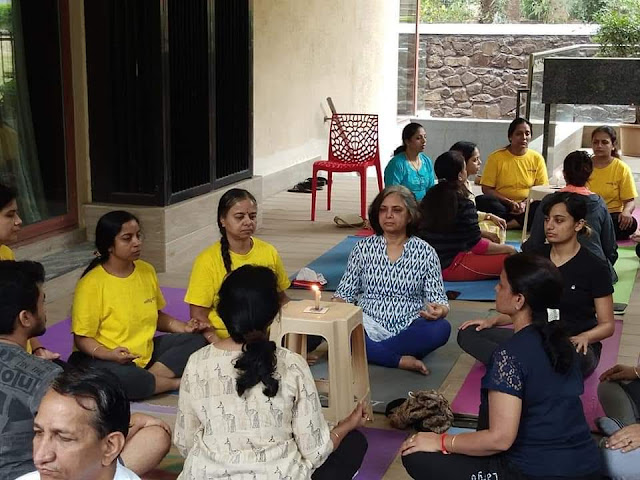A good meditation mindset is to approach our practice with intention and purpose. One intention is to slow down a bit that will help calm our mind and emotions so that we can feel more grounded and peaceful. Another intention is to connect to a deeper aspect of ourself.
Chandrasegara Chan Hi friends, thank you for allowing me to join your group and let me introduce myself. My name is Chandrasegara Maniam but my friends call me Chan and I am 62 years old. I’m Singaporean and retired. I attended classes to learn how to mediate and been practicing mediation for past one year or so, and would like to share my experiences in sensations meditation with you. In the beginning I was one of those people who think, that the purpose of meditation, is to stop the mind. I sat and tired. Soon I got into a fight’ with my mind, a fight that I lose. Frustrated, I give up. Do you recognize yourself in this scenario?
But I was very curios in how to mediate and how to practice meditation, so I attended “Raja Yoga” meditation classes, where I learn calming the mind is a more appropriate goal, and a good way to do it, is by paying attention to my breath. So my work in meditation, right now, is concentrating on my breath. This means, staying with my breath, and the sensations of my breath, continuously. One single breath can make me aware of my posture, how tight my belt is, and of any tension in my abdominal muscles. By concentrating on the breath, I also offer the mind something other than thoughts, to chew on. This works better than fighting, to get my mind, to slow down.
When I continue to pay attention, as my abdomen rises and falls with each breath, like a child going high and low on a swing, and like a swing, my breath slows down at each end. I follow it all the way as it slows down, and starts again. When my mind keeps producing thoughts, I do not follow the thoughts but concentrate on my breath like a swing. Focusing on my breath, keeps me from getting lost in my thought. When I sit upright, breathe comfortably. My mind is peaceful, My body free of tension. I am calm and rested. I feel free. I feel at home. With each breath, I relax my face muscles and smile.
Practicing meditation on a daily basis allows me to weave silence and stillness into my mind and body to create a life of greater compassion and fulfillment. Even when my mind is filled with agitated thoughts, I still have access to the inner stillness and calm that always lies beneath the choppy surface of thought and emotion. Now I can mediate anywhere , anytime, while walking or when having tea, three second, two second . Anywhere and Anytime! How ? “ sitting upright, breathing comfortably and following my breath in and out slowly”.
Question: I meditate regularly twice per day for thirty minutes each time. Sometimes during meditation I feel that I don’t have a sense of the position of my physical body. I don’t have a sense of whether I’m upside down or upright, and I feel like I’m whirling. Could you help me understand what is happening? Am I on the right path !
Your comments is very much appreciated.













































